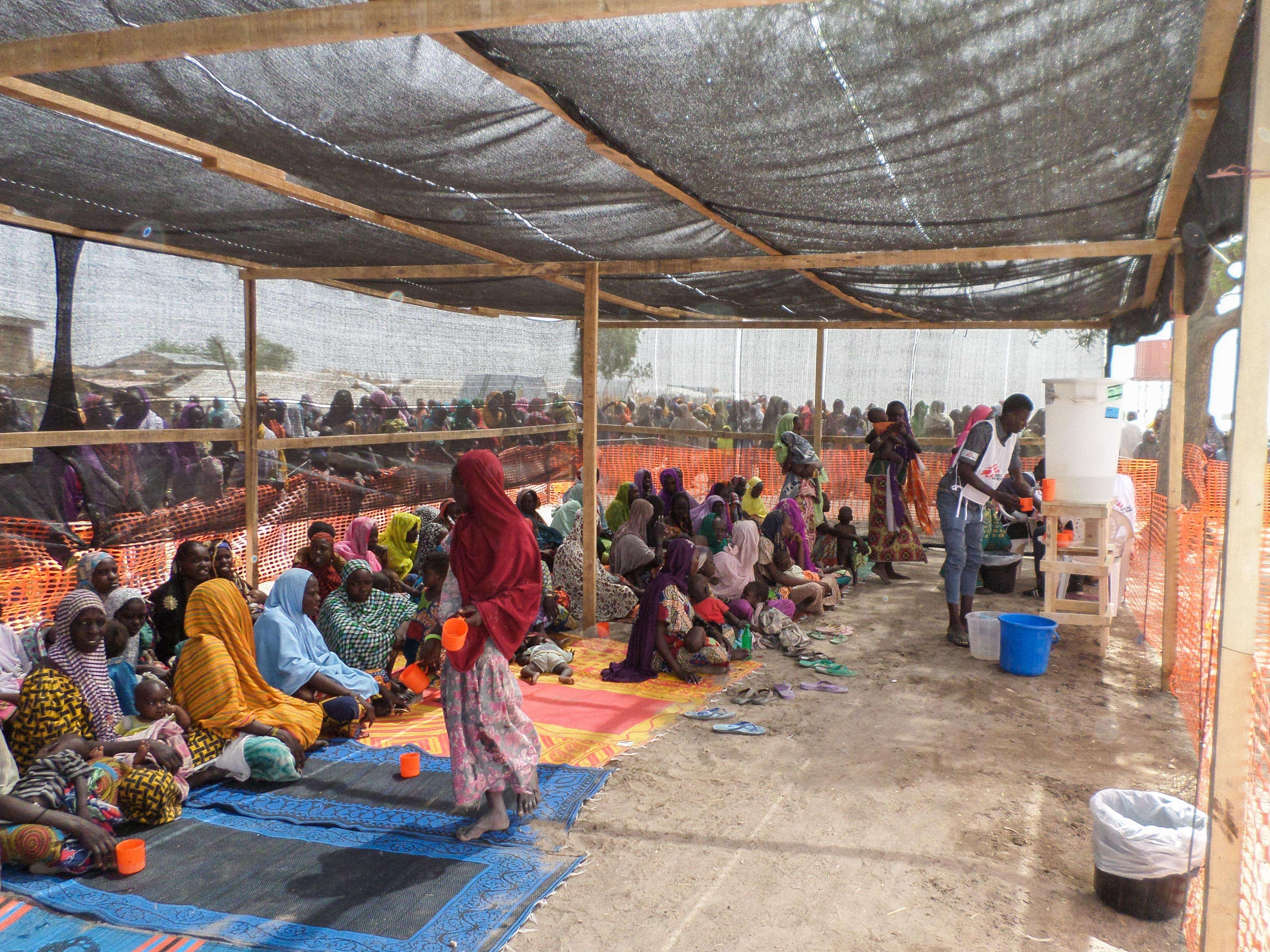GENEVA/NEW YORK, MARCH 2, 2018—Following a violent attack yesterday near Rann, in Nigeria's Borno state, Doctors Without Borders/Médecins Sans Frontières (MSF) suspended its medical activities in the town and evacuated 22 Nigerian and international staff.
It is still unclear how many people were killed and injured in the attack, but before leaving, MSF medical staff treated nine wounded patients.
Three aid workers were reportedly among those killed, according to the United Nations Office for the Coordination of Humanitarian Affairs.
"We are deeply shocked by the loss of three humanitarian colleagues in Rann," said MSF international president Dr. Joanne Liu. "These tragic deaths reflect the ruthless violence which the people trapped in Borno face daily."
Prior to the attack, the roughly 40,000 people living in Rann were relying almost entirely on MSF's services to access health care.
"Leaving our patients, which include 60 children currently enrolled in our nutrition program, without medical assistance, is an extremely painful decision," said Kerri Ann Kelly, MSF emergency coordinator in Nigeria. "We will continue to evaluate how the situation evolves and we will return as soon as the conditions allow. This latest attack is a stark reminder that it is the people in Borno who are paying the price of this ruthless conflict. They are trapped in a deadly cycle of violence and are heavily reliant on external assistance to survive. In Rann, vital assistance is now considerably reduced."
The conflict in northeastern Nigeria between the Nigerian military and armed opposition groups known as Boko Haram has been ongoing for more than eight years, with serious humanitarian consequences.
MSF teams have been providing medical care in Rann since January 2017. Mobile teams delivered assistance on a regular basis, and a permanent medical team has been based in Rann since September 2017. The people in Rann are extremely vulnerable, as many have sought shelter there after fleeing their homes. MSF has mainly been treating people for malaria, malnutrition, and illnesses linked to poor living conditions. The town was cut off from the outside world during the months of the rainy season and no food or aid supplies were brought in during this time. MSF estimates that the mortality rate among children under five in Rann was twice the level that is considered a humanitarian emergency between May and November 2017.




